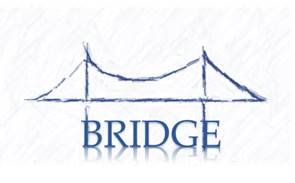 The workshop focuses on tackling the HPC and Computational Science talent gap, since, according to IDC and our latest studies, in EU, USA, Japan as well as in the BRICS and Latin America this gap appears to be similar and involves similar areas. On the other hand we observe mathematics led innovation both in EU and USA, with critical demand of Computational Science Research Methods to bridge the above gap. Thus the focus of the workshop is on the overall environment and how the needed research skills for the changing HPC ecosystem can be built into the PG level and professional development. The intention is to provide forum for discussion highlighting not the single instances on lesson level but rather the means to affect change by increasing Computational Science visibility at curricula and degree level.
The workshop focuses on tackling the HPC and Computational Science talent gap, since, according to IDC and our latest studies, in EU, USA, Japan as well as in the BRICS and Latin America this gap appears to be similar and involves similar areas. On the other hand we observe mathematics led innovation both in EU and USA, with critical demand of Computational Science Research Methods to bridge the above gap. Thus the focus of the workshop is on the overall environment and how the needed research skills for the changing HPC ecosystem can be built into the PG level and professional development. The intention is to provide forum for discussion highlighting not the single instances on lesson level but rather the means to affect change by increasing Computational Science visibility at curricula and degree level.
The workshop solicits position papers, strategic and full papers covering, but not limited to, the following topics:
- Teaching/Learning methodologies that support and facilitate Computational Science research methods
- Information Technologies and approaches/platforms that facilitate and support Computational Science research methods (collaborative tools and environments for Computational Science, use of learning analytics for CompSci, etc.)
- Domain Applications and Case studies in the context of the Computational Science/ HPC ecosystem (multidisciplinary Computational Science and domain specific case studies showing integration of curricula, identifying factors/parameters of success, impact and achievements, etc. while applying and implementing Computational Science research methods.)
- Studies and approaches in evaluating the impact of the Computational Science research methods on the Higher Education ecosystem at PG and professional level
- Research ideas/projects/initiatives focused on Computational Science research methods and approaches tackling the Computational Science/HPC skills Gap.
- Social Context and Learning Environments (Collaborative learning, communities and community building, etc.)
- Impact of the integration of the Computational Science research methods in the PG curricula
Program Committee:
Nia Alexandrov, BSC, Spain
Raul Ramirez, ITESM, Mexico
Svetlana Chuprina, PSU,Russia
Valerie Maxville, iVEC, Australia
Vassil Alexandrov, ICREA-BSC, Spain
Workshop co-chairs:
Nia Alexandrov
Vassil Alexandrov
How to Submit:
- Prepare the manuscripts in Procedia Computer Science format (no more than 10 pages) [LaTex],[MS Word]
- Log-in to ICCS 2015 submission site in EasyChair
- You will need to create an account if you do not have an existing account in EasyChair.
- Select the workshop: BRIDGE’15-Bridging the Talent Gap with Computational Science Methods and submit your paper through the following link
All accepted papers will be printed in the conference proceedings published by Elsevier Science in the open-access Procedia Computer Science and indexed by Scopus, ScienceDirect, Thomson Reuters Conference Proceedings Citation (former ISI Proceedings) -an integrated index within Web of Science. The papers will contain linked references, XML versions and citable DOI numbers.
The submitted paper must be camera-ready and formatted according to the rules of Procedia Computer Science, not exceeding 10 pages. Submission implies the willingness of at least one of the authors to register and present the paper.
Papers must be based on unpublished original work and must be submitted to ICCS only.
After the conference, selected papers will be invited for a special issue of the Journal of Computational Science.
ICCS is an ERA 2010 A-ranked conference series.
Important dates:
- Paper submission deadline: February 5, 2015
- Notification of acceptance: February 26, 2015
- Camera Ready: March 31, 2015
